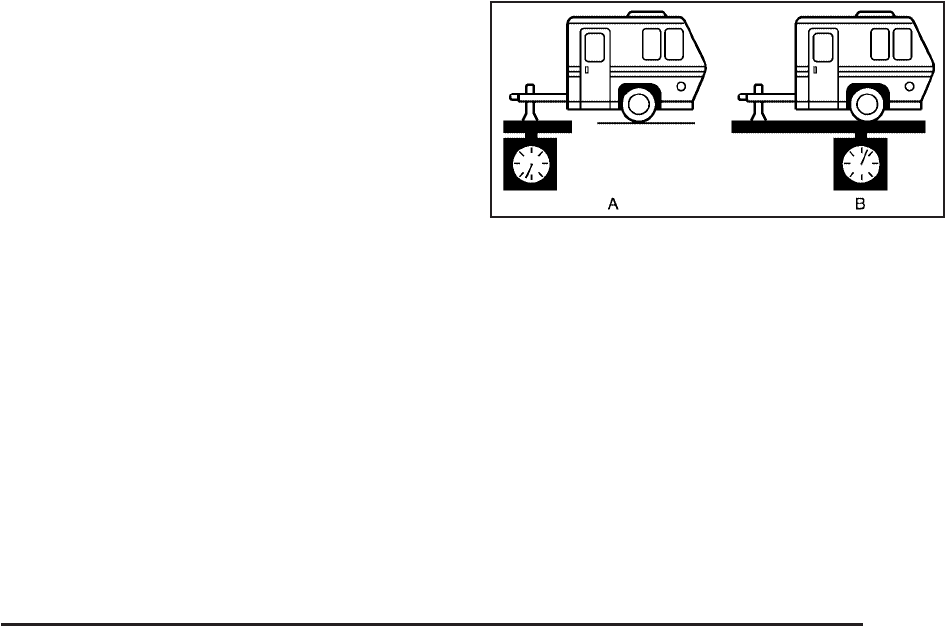
It depends on how you plan to use your rig. For
example, speed, altitude, road grades, outside
temperature and how much your vehicle is used to
pull a trailer are all important. And, it can also depend
on any special equipment that you have on your
vehicle.
You can ask your retailer for trailering information
or advice.
Weight of the Trailer Tongue
The tongue load (A) of any trailer is an important weight
to measure because it affects the total or gross weight
of your vehicle. The Gross Vehicle Weight (GVW)
includes the curb weight of the vehicle, any cargo you
may carry in it, and the people who will be riding in
the vehicle. If you have a lot of options, equipment,
passengers or cargo in your vehicle, it will reduce
the tongue weight your vehicle can carry, which will
also reduce the trailer weight your vehicle can tow.
And if you tow a trailer, you must add the tongue load
to the GVW because your vehicle will be carrying
that weight, too. See Loading Your Vehicle on page 4-49
for more information about your vehicle’s maximum
load capacity.
If you’re using a weight-carrying hitch, the trailer
tongue (A) should weigh 10 percent of the total loaded
trailer weight (B). If you’re using a weight-distributing
hitch, the trailer tongue (A) should weigh 12 percent of
the total loaded trailer weight (B).
After you’ve loaded your trailer, weigh the trailer and
then the tongue, separately, to see if the weights
are proper. If they aren’t, you may be able to get
them right simply by moving some items around in
the trailer.
4-57


















